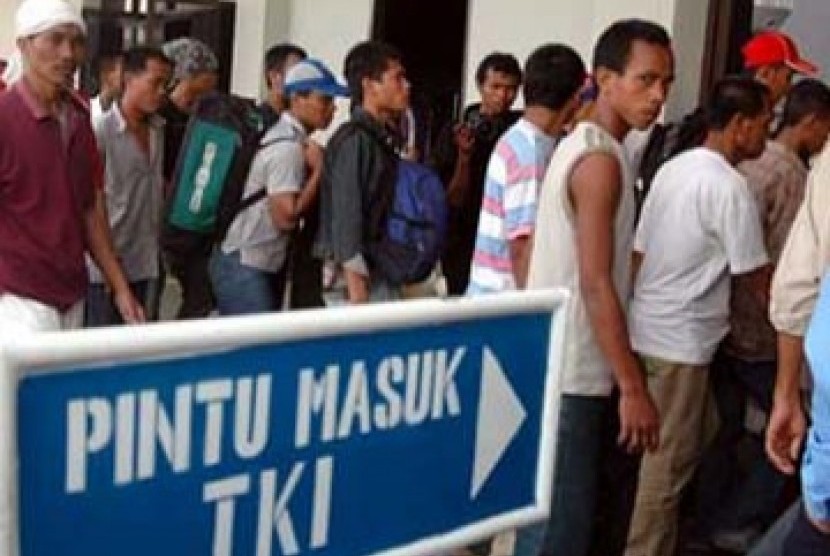REPUBLIKA.CO.ID, JAKARTA -- The Ministry of Social Affairs has set a target to repatriate 50 thousand problematic Indonesian migrant workers (TKI) now being housed in the House of Protection and Trauma Center (RPTC) to their original regions.
"Our initial target is 15 thousands. But it has risen now to 50 thousand workers," Social Affairs Minister Khofifah Indar Parawansa said here on Friday.
The repatriation will be carried out in cooperation with the Ministry of Manpower and the National Agency for Placement and Protection of Indonesian Workers Overseas (BNP2TKI), she said.
Parawansa said that so far problematic workers who were deported from Malaysia through the RPTC in Tanjung Pinang, Riau Islands Province, were sent back to their respective regions by the Ministry of Social Affairs.
After being returned to their hometowns they are each given business capital from the ministry of social affairs amounting to Rp3 million.
However, without work training, the working capital could not be managed maximally.
"We have coordinated with the Ministry of Manpower and the BNP2TKI which will prepare programs for their training," Parawansa added.
It is expected that after having been prepared to be self-reliant at home, they will not go abroad to become illegal TKIs again.
"Thus, we hope the problematic workers abroad could be reduced," she said.
In the meantime, Malaysian Ambassador to Indonesia Zahrain Mohamed Hashim said his country will help Indonesia overcome its migrant workers' problem, particularly the issue of illegal workers.
"Our priority is to prevent illegal TKIs from entering Malaysia," the Ambassador said here on Wednesday.
According to him, the problem of migrant workers is a classic issue between the governments of Indonesia and Malaysia and it involves two factors, namely security and humanity issues.
"The security factor surfaces when a worker commits a crime in Malaysia and the humanity issue depends on how TKIs enter the country," Hashim noted.
The issues can become worse if the number of illegal immigrants increases, he added.
In October 2011, the Malaysian government initiated the 6P program to resolve the issue of illegal foreign workers and immigrants in the country.
6P is the acronym for Pendaftaran (registration), Pemutihan (legalization), Pengusiran (deportation), Pemantauan (monitoring), Penguatkuasaan (rehabilitation), and Pengampunan (amnesty).
The legalization program is to help immigrant workers who seek jobs illegally, and 1.2 million of them are Indonesians.
Hashim hopes that the legalization process stops illegal TKIs from entering Malaysia.
"If the issue of illegal migrants ends, it will strengthen the relations between Indonesia and Malaysia," he noted.
The Ambassador acknowledged the contributions made by Indonesian workers to his country's economic growth and the importance of cooperation to increase workers' protection.
"TKIs are contributing to Malaysia's oil, plantation, and manufacturing industries," the Ambassador observed.
Moreover, Hashim added, the ASEAN Economic Community (AEC) 2015 will change the dynamics of the flow of labor in the region.
He remarked that migrant workers' problem needs to be fixed in order to support the AEC's goals.


